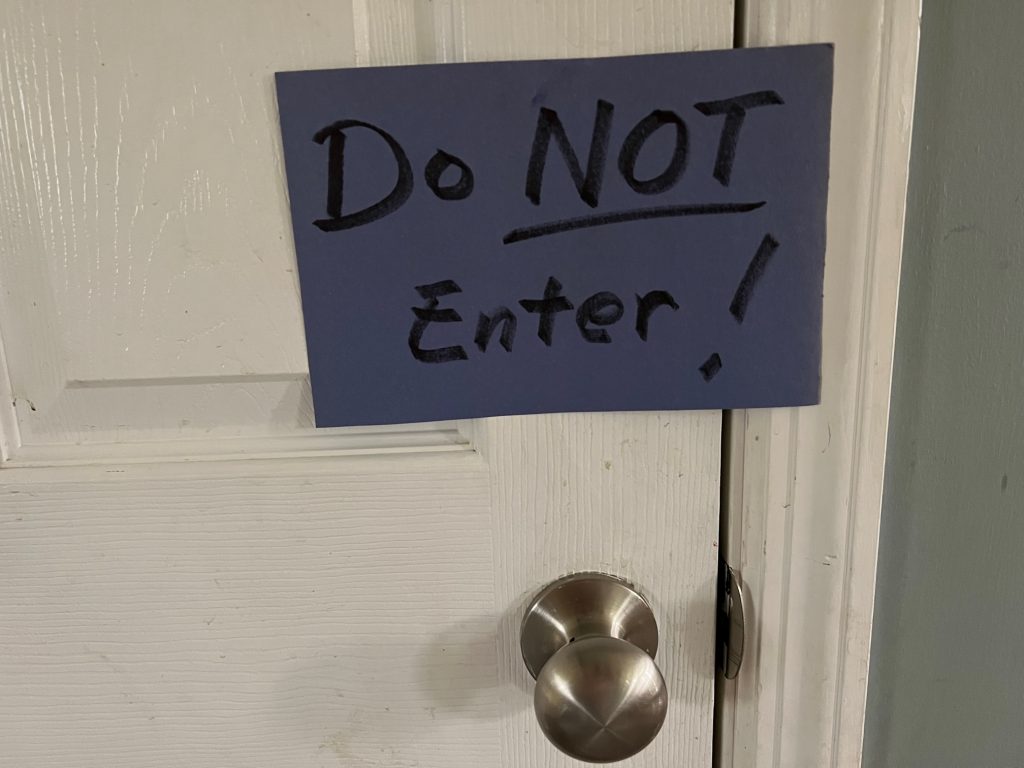
Who, us? Keeping something from Jesus?
To the question of keeping something from Jesus, we likely reply, “Of course, we don’t! Our relationship with Jesus only deepens when we share.”
We may even go further. “Locking something away from Jesus is not what we do. In fact, it’s the opposite of what we do.”
Then we read John 20:19-23, familiar text for the Sunday following Easter Sunday. It’s the story of Jesus’ disciples who lock themselves away in fear for their lives. If we read this introspectively, we can place ourselves in this scripture when we ask again if we lock anything away from Jesus.
The disciple’s fear is understandable. Their leader was crucified three days earlier. The close-knit group is hiding in an upper room because they wonder if they, too, will be crucified. After all, they can be associated with more than just knowing this upstart rebel teacher/preacher/prophet/healer. They have been in his close company for three years.
They have also healed in Jesus’ name. Accounts reveal Jesus gave the disciples—his disciples—the power to heal (Matthew 10:1, Luke 9:1). Given this, it is no wonder they wonder if they will die as common criminals by way of the cross.
Seeing the disciples locked away in this honest place of fear can make us wonder if we have locked away something from Jesus. It’s unlikely we are hiding behind a locked door in an upper room in fear for our lives, but the thought that we could be hiding something from Jesus is an important question.
Sure, we can be public about Jesus. We can even be private with Jesus, and this is not just beautiful, it’s necessary. But as we walk post Easter Sunday with a tomb now empty and salvation at hand, is there something we tuck away from Jesus? Is there a place in our lives where a “Keep out” sign is posted?
It’s counterintuitive to think we keep anything from Jesus. He is, after all, our Savior. We call Him this because He has indeed saved us from our sins.
But this season of Easter could be a time where we look into ourselves and ask if we’ve metaphorically taped a note to an innermost door inside ourselves. The note reads, “Do not enter.”
We could have written the note for ourselves. The note could also be for Jesus.
Maybe our well-kept sin is judging others. We can turn over the other sins in our lives easily and readily, but judging others? This is too close to us. This is too precious to us.
Maybe it’s not judging. Maybe it’s tithing. Maybe it’s a deep hatred of something or someone and no, nope, nada, we are not giving that to Jesus. In fact, we’re hiding it from Jesus (or we’re trying to hide it from Jesus by not mentioning this in prayer or in fellowship with others).
Hebrews 4:13 says what we know on one level but may choose to forget on another. “No one can hide from God. His eyes see everything we do. We must give an answer to God for what we have done (NLV).”
God sees all. But do we? If we do see (or when we do see), are we willing to share this with Jesus, or do we hold back or hide?
If this scripture is to work for us—and oh, yes, this scripture can work for us—then we need honest time with ourselves and the question one more time. Are we keeping something from Jesus?
Psalm 32:7 says God is our hiding place. God is the safe place to go when the world is troubling. This is indeed a comfort. We are also sheltered under the wings of God (Psalm 61:4, 63:7, and 91:4). We aren’t hiding in fear in this shelter imagery. We are resting in peace.
The disciples are not resting in peace when we meet them behind those locked doors in John 20. They’re scared!
But there is no hiding. Jesus comes to us in our fear as Jesus came to His disciples in their fear. His presence with them changed them just as His presence with us changes us. Peace isn’t illusive. Peace is a fresh breath, a new start, and a welcomed future.

Leave a Reply